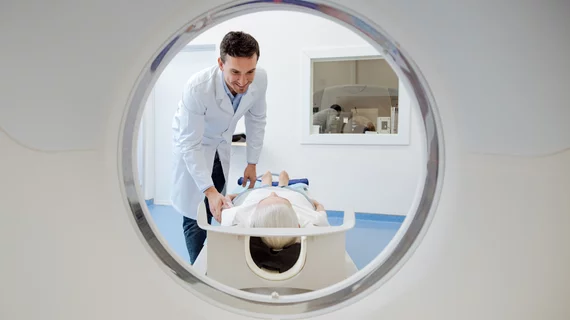Advocates warn of supply chain 'crisis’ that could hamper MRI availability
An industry trade group is warning of an impending “supply chain crisis” that could potentially hamper the availability of magnetic resonance imaging.
The General Services Administration is reportedly eyeing a sale of the Federal Helium Reserve System. Located in Oklahoma and Kansas, the reserve provides roughly 20% of the U.S. helium supply, which is crucial for MRI machines, along with several other industries.
However, the Compressed Gas Association is pressuring the administration to delay the sale amid concerns about the impact it could have on patient care.
“From computer chips to medical imaging to the energy sector, helium is vital,” Rich Gottwald, president and CEO of the association, said in a Jan. 18 announcement. “This poorly structured and ill-timed sale would make lifesaving MRI’s less accessible, the chips that connect everything from computers to cars to airplanes less available and would have an immediate impact on America’s national security.”
Gottwald and colleagues cited a Dec. 21 report from the Department of Commerce, which contended that the sale could hamper semiconductor production. They also note, based on historical data, that selling to a private entity could result in “months of delays” in procuring helium. That’s because the new owner would need to identify and address operational issues and put systems in place to comply with regulatory requirements, among other things. The U.S. is the world’s largest helium supplier, with Qatar No. 2.
“Any disruption in the supply chain would cause U.S. dependence on a country in the Mideast, a region in the midst of both war and attacks on shipping” Gottwald said.
The U.S. has faced other recent helium shortages that have raised concern among physicians who rely on magnetic resonance imaging.

